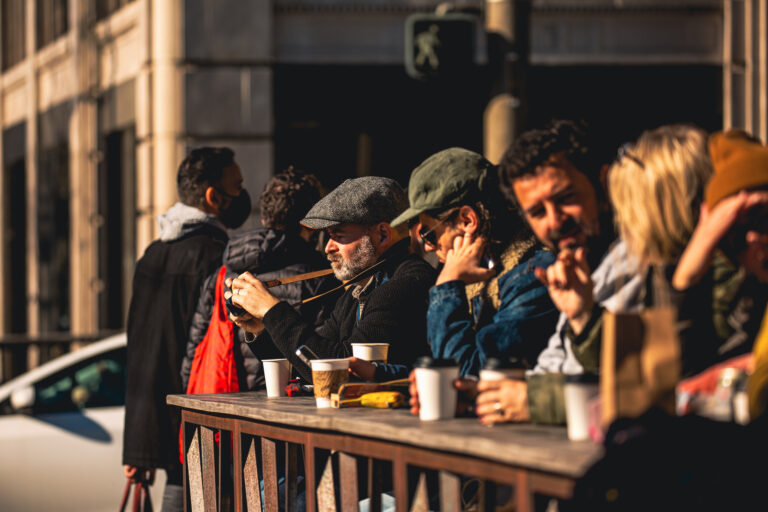The most common reason for a ballot’s rejection is its signature doesn’t match what’s on file, so usually all a voter has to do is fill out a Signature Resolution Form.
Published on September 9, 2024

Reported by Scott Greenstone for KUOW/NPR
On a mid-August afternoon in Seattle, Lisa McCrummen walked around Phinney Ridge knocking on doors — but her neighbors were not home.
“‘Your neighbor stopped by to make sure your primary election ballot is being counted,’” McCrummen wrote on a note.
McCrummen left notes like this all afternoon at homes where someone voted, but their vote was rejected. That happens around 25,000 to 35,000 times a year in Washington — about a half a percent of all ballots, according to a recent University of Washington study.
But getting that voter’s attention before the deadline can take effort. Normally, it’s up to a county’s elections office to tell a voter to fix their ballot before the deadline to tally all votes arrives, a couple weeks after Election Day.
Volunteers like McCrummen, hoping to fix as many ballot issues as possible on this tight timeline, step in when a race is exceptionally close.
McCrummen is not just hoping for any votes, however. She’s a volunteer for Dave Upthegrove, a Democrat teetering between second and third place in the closest primary in Washington state history: Commissioner of Public Lands.
Around a week after her neighborhood excursion, the difference between Upthegrove and his Republican competitor in third place, Sue Kuehl Pederson, came down to just 51 votes. The difference triggered a hand recount. (Another Republican, former Congresswoman Jaime Herrera Beutler, pulled ahead of Pederson, Upthegrove, and four Democrats who split the vote.)
Such a close result also triggers a race between the Democratic and Republican state parties over who can do more “ballot curing,” having volunteers like McCrummen call, text, and even show up at voters’ doors.
This little-known and relatively new practice, also called “ballot rehab,” can mean all the difference in a close race. There are more than 300 volunteers working on the Democrat side in the land commissioner race, according to Upthegrove’s campaign.
“It’s a very labor intensive aspect of a campaign, if it comes down to that,” said Todd Donovan, a professor of political science at Western Washington University. He’s also a Whatcom County Councilmember who’s served on county election canvassing boards in the past, certifying cured ballots.
Upthegrove’s campaign reached out to almost 13,000 voters and less than a fifth of them cured their ballots before the deadline.
What’s more, volunteers like McCrummen can’t be sure if the voters they’re contacting actually voted for their candidate or one of the other four Democrats, and they’re not supposed to ask.
“We don’t have people’s registration by party here, but the campaigns do have some sense of which door you’re knocking on might be somebody sympathetic to the side that you’re trying to find ballots for,” Donovan said. They can cross-reference donation data, info from door-knockers, demographics — to triangulate the houses they visit.
In King County, where McCrummen was knocking doors, there are likely more Upthegrove voters. At the same time, down in Pierce County, GOP volunteers were trying to find votes for Sue Kuehl Pederson, the Republican right behind Upthegrove.
A recent University of Washington study reported that half a percentage of all votes in Washington State are rejected, usually because the signature doesn't match what is on file.